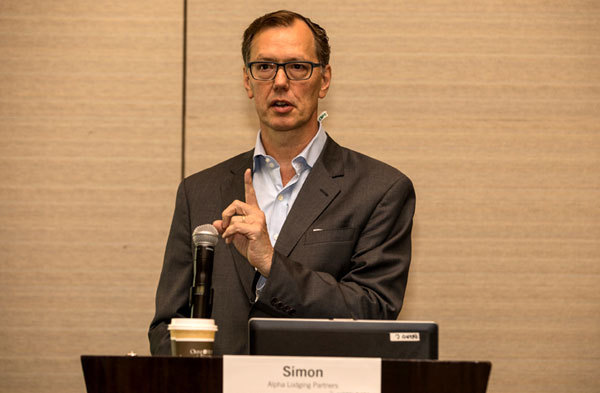✕

Column: industry Tag: millennials,hotel industry,hiring for millennials Published: 2017-08-18 15:56 Source: Author:

Caption: Simon Turner, managing member at Alpha Lodging Partners, leads the discussion in the “Analytical talent and the millennial mindset” session at the 2017 Hotel Data Conference.” (Photo: Event Coverage Nashville)
NASHVILLE, Tennessee—Much of the world has been focused on how millennials’ careers goals are much different than those of older generations, but hoteliers said that’s not the case when it comes to analytical roles within the hotel industry.
The focus on millennials might be more about the sheer number of them than about their distinct needs.
“If you do look at that millennial segment … it is now the largest proportion of the U.S. population, not necessarily the working population, but all over …,” said Simon Turner, managing member at Alpha Lodging Partners, while moderating a panel titled “Analytical talent and the millennial mindset” at the Hotel Data Conference.
“I think we all know that this is the group, if we’re going to have (productive) enterprises, we’re going to have to manage this group.”
But hiring for analytical roles is focused more on finding the right skillset, regardless of generational sets, panelists said.
“I give data sets out for hiring, and I’m looking for that one person who is going to come back with just a little bit more,” said Kelly McGuire, SVP of revenue management at MGM Resorts International. “There is an answer, but then there’s the good revenue management answer. You know … where are we going to maximize profit? Or where are we going to maximize price?”
She added that her company’s recruitment strategy includes building relationships with professors of universities to let them know the type of candidates they’re looking at for analytical roles.
Millennials aren’t that different
Some believe millennials have much different wants than other generations, but according to panelists, they’re not that unique.
“I think as a society we’ve changed,” said Isaac Collazo, VP of performance strategy and planning at InterContinental Hotels Group. “A lot of this is applicable to all of us, including Generation X and the baby boomers …. I think we’re all just more open to less structure … and so we don’t want to be told we have to wear a tie every day. When I started in the business … I wore a tie every day. Now, I prefer wearing jeans.
“I think it’s just we’ve evolved. We like that flexibility; we do want some control over our lives. It’s an issue of control. I (don’t have) 100% control, but I have some control.”
To adapt with the times, Collazo said, there’s no hierarchy on his team; anyone can come to him and say what they want, whenever they want.
“The hierarchy is evolving, but again, it is evolving,” he said. “I don’t know if this is just unique to millennials. I had employees 10 years ago who wanted to go straight to the top with their idea. … So again, I don’t know if (millennials) are that different.”
Retention isn’t a big concern
Asked how they retain great millennial talent for analytical roles, some panelists admitted they realize they’re going to lose some of their employees to other companies.
“I finally decided that I didn’t care about retention, because I wasn’t going to be able to retain a big chunk of my team,” McGuire said. “I lost one of my data scientists to Facebook. I can’t compete with Facebook. They’re rare skillsets in analytical roles; they’re going to move on.”
Because of this inevitability, McGuire said, it’s important to keep documentation of the work analytical team members do, so they can pass it on to the next hire. She said MGM also promotes the fact that past company hires have “moved on to awesome, sexy jobs with awesome, sexy companies” when recruiting.
Liz Perkins, SVP of corporate strategy and reporting at Apple Hospitality REIT, said her company has little turnover, but she recognizes it does happen.
“We were growing at such a rapid, rapid rate at one point, and we’re at a stable level (now),” she said. “Big opportunities may come, but they’re not right smack in our face, and that’s because we don’t know what they might be, and we kind of realized and we socialized the idea that we may not be a permanent home for some of the folks we bring in, and we’re comfortable with that and we plan for that.”
Previous:New Road Hotel set to open in Whitechapel, London, in late 2017
Next:STR: US hotel results for week ending 12 August
Hot key words
Hot Products
Popular Vendors